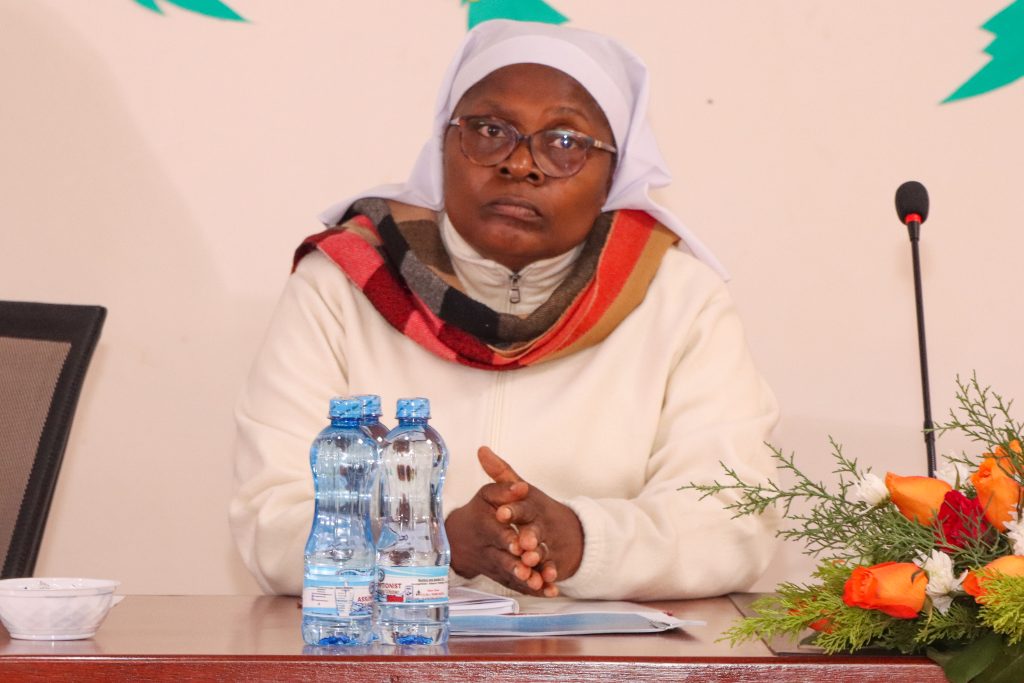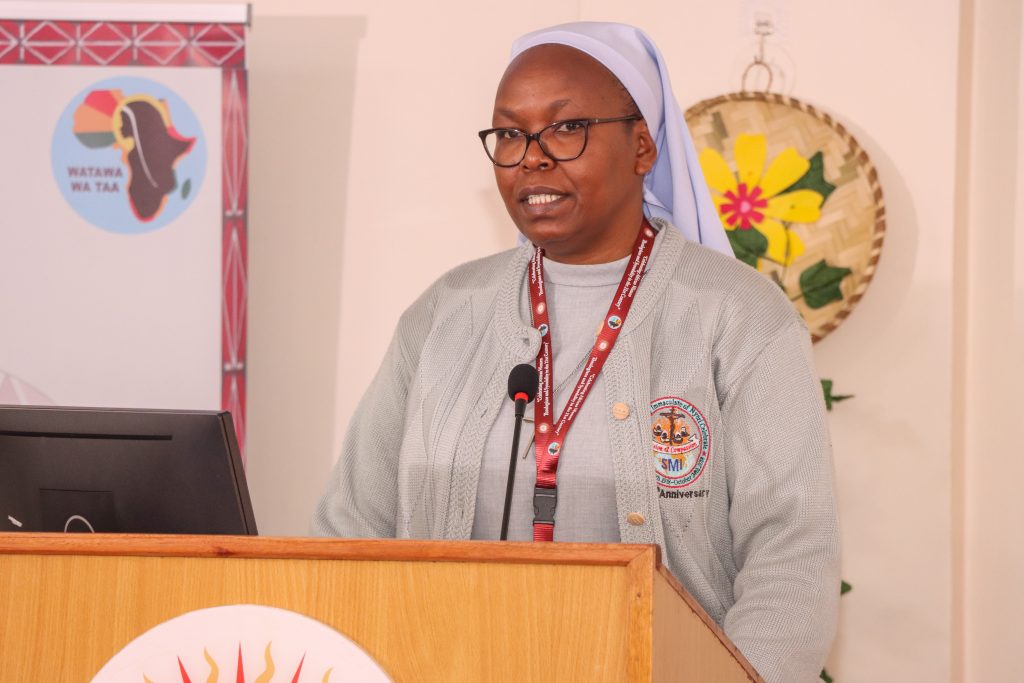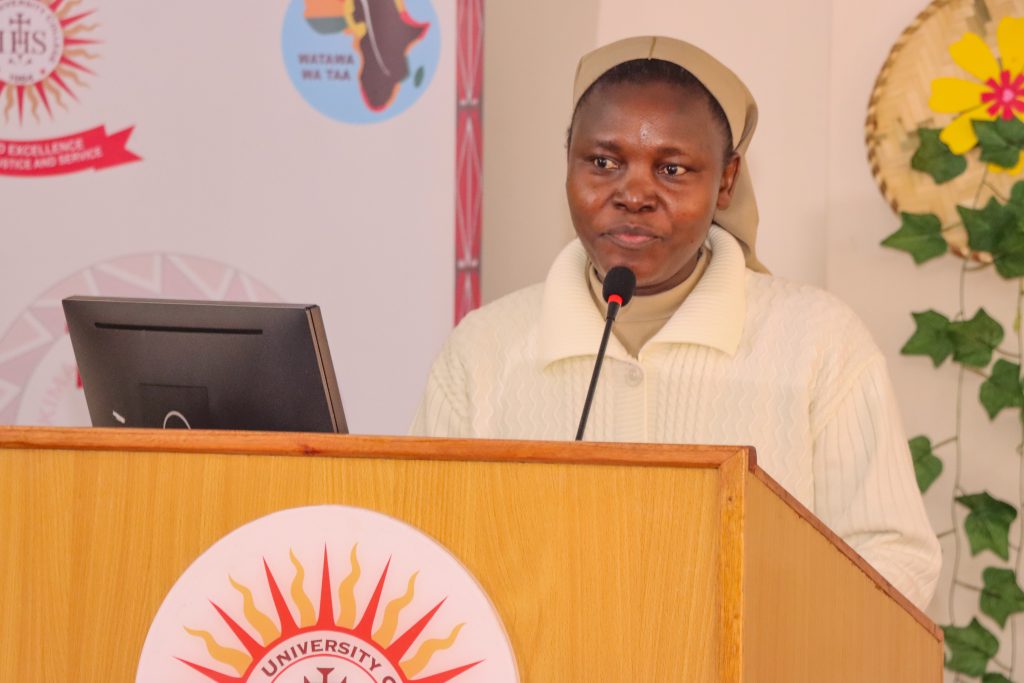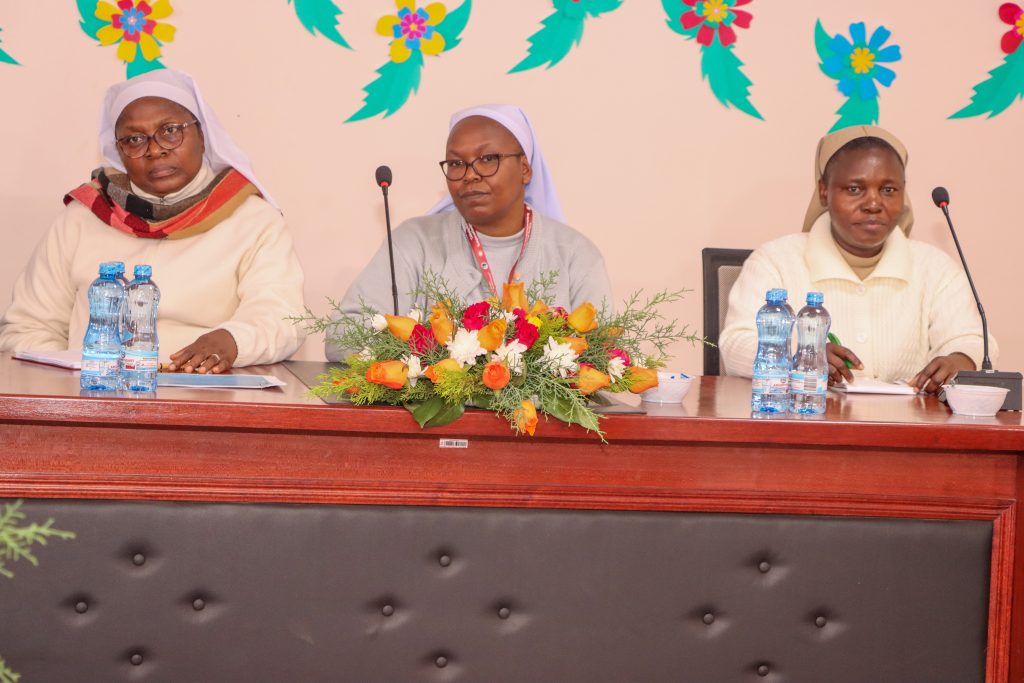Day Two of the African Women Theologians Conference 2025 at Hekima University College in Nairobi turned its focus to “Church Norms and Synodality,” offering participants a rich blend of theological, pastoral, and canonical perspectives. Morning and mid-morning sessions brought together scholars and religious women who challenged the Church to live Synodality in concrete, transformative ways.
Opening the day’s discussions, Dr. Sabine Ursule Ngueme, CFMY, Ph.D., reflected on “The General Chapter as a Synodal Venue: The Participation of Religion in Major Decision-Making for the Religious Institute.”
She described the General Chapter as more than an administrative exercise. “The Chapter is a sacred space of discernment,” Dr. Ngueme stressed. “It is where every member’s voice must be welcomed, because Synodality calls us to build communion through participation and shared wisdom. When decision-making becomes the privilege of a few, the synodal journey loses its authenticity.”

Her words struck a chord with many participants, especially as she emphasized the need for transparency, intercultural dialogue, and shared responsibility in the governance of religious institutes.
Picking up the conversation, Sr. Ann Kirera Kinya, SMI, a student at the Catholic University of Eastern Africa persuing Licentiate in Canon Law, shifted attention to religious formation in her presentation, “Reclaiming Pastoral Identity from Secular Professional Attitudes: A Synodal Invitation to Women Religious Formation Today.”
Sr. Kirera acknowledged the immense contribution of women religious in fields like education, healthcare, and social services, but cautioned against allowing professional identity to overshadow their spiritual and pastoral calling.
“We are not just professionals; we are consecrated women,” she reminded. “Professional skills are gifts, but they must never become ends in themselves. Formation should prepare us to serve with compassion, to listen, and to accompany people in their daily struggles. That is the heart of Synodality.”

Her call to balance professionalism with charisma resonated deeply in a context where many young women religious juggle both pastoral service and professional qualifications.
The morning’s final session was led by Sr. Dr. Jacinta Auma Opondo, FSSA, J.C.D., lecturer of Canon Law at Hekima University College, who presented on “Canon Law: Sine Qua Non for Synodal Cohesion Towards Truth, Justice and Mercy.”
Far from viewing canon law as rigid or punitive, Sr. Opondo described it as a vital tool for safeguarding justice and mercy in the Church. “Canon law is not opposed to synodality,” she said. “On the contrary, it ensures that participation is orderly, that responsibilities are clear, and that the vulnerable are protected. Without norms, our efforts at communion risk becoming fragile.”

She further explained that canon law, properly understood, guarantees that synodal processes are not simply rhetorical but grounded in accountability and truth.
Together, the three sessions painted a vivid picture of the Church’s journey with synodality. Dr. Ngueme highlighted the importance of participatory governance, Sr. Kirera reminded of the pastoral heart of religious life, and Sr. Opondo showed how law undergirds mercy and justice.
As participants moved into afternoon workshops and dialogue circles, Day Two’s discussions left them with a renewed conviction: synodality is not an abstract concept. It is lived out concretely, in the way religious institutes make decisions, in the way sisters are formed for ministry, and in the way the Church’s laws ensure fairness and accountability.
The African Women Theologians Conference continues tomorrow with further reflections on the role of theology in healing, inclusion, and collaborative leadership within the Church.

